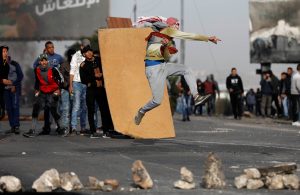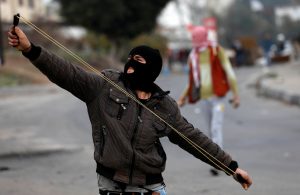
By Drazen Jorgic
ISLAMABAD (Reuters) – Pakistan has summoned the U.S. ambassador to protest against U.S. President Donald Trump’s angry tweet about Pakistani “lies and deceit”, which Foreign Minister Khawaja Asif dismissed as a political stunt.
David Hale was summoned by the Pakistan foreign office on Monday to explain Trump’s tweet, media said. The ministry could not be reached for comment but the U.S. Embassy in Islamabad confirmed on Tuesday that a meeting had taken place.
Trump said the United States had had been rewarded with “nothing but lies and deceit” for “foolishly” giving Pakistan more than $33 billion in aid in the last 15 years.
“They give safe haven to the terrorists we hunt in Afghanistan, with little help. No more!” he tweeted on Monday.
His words drew praise from Pakistan’s old foe, India, and neighboring Afghanistan, but long-time ally China defended Pakistan.
Pakistan Prime Minister Shahid Khaqan Abbasi on Tuesday chaired a National Security Committee meeting of civilian and military chiefs, focusing on Trump’s tweet. The meeting, which lasted nearly three hours, was brought forward by a day and followed an earlier meeting of army generals.
Relations with Washington have been strained for years over Islamabad’s alleged support for Haqqani network militants, who are allied with the Afghan Taliban.
The United States also alleges that senior Afghan Taliban commanders live on Pakistani soil, and has signaled that it will cut aid and take other steps if Islamabad does not stop helping or turning a blind eye to Haqqani militants crossing the border to carry out attacks in Afghanistan.
In 2016, Taliban leader Mullah Mansour was killed by a U.S. drone strike inside Pakistan and in 2011, al Qaeda leader Osama bin Laden was found and killed by U.S. troops in the garrison town of Abbottabad.
Islamabad bristles at the suggestion that it is not doing enough to fight Islamist militants, noting that its casualties at the hands of Islamists since 2001 number in the tens of thousands.
“DEAD-END STREET”
Foreign Minister Asif dismissed Trump’s comments as a political stunt born out of frustration over U.S. failures in Afghanistan, where Afghan Taliban militants have been gaining territory and carrying out major attacks.
“He has tweeted against us and Iran for his domestic consumption,” Asif told Geo TV on Monday.
“He is again and again displacing his frustrations on Pakistan over failures in Afghanistan as they are trapped in dead-end street in Afghanistan.”
Asif added that Pakistan did not need U.S. aid.
A U.S. National Security Council official on Monday said the White House did not plan to send an already-delayed $255 million in aid to Pakistan “at this time” and that “the administration continues to review Pakistan’s level of cooperation”.
Afghan defense spokesman General Dawlat Waziri said Trump had “declared the reality”, adding that “Pakistan has never helped or participated in tackling terrorism”.
Jitendra Singh, a junior minister at the Indian prime minister’s office, said Trump’s comment had “vindicated India’s stand as far as terror is concerned and as far as Pakistan’s role in perpetrating terrorism is concerned”.
But Chinese Foreign Ministry spokesman Geng Shuang, asked during a briefing about Trump’s tweet, did not mention the United States.
“We have said many times that Pakistan has put forth great effort and made great sacrifices in combating terrorism,” he said. “It has made a prominent contribution to global anti-terror efforts.”
Pakistani officials say tough U.S. measures threaten to push Pakistan further into the arms of China, which has pledged to invest $57 billion in Pakistani infrastructure as part of its vast Belt and Road initiative.
(Reporting by Drazen Jorgic in ISLAMABAD, Syed Raza Hassan in KARACHI, Malini Menon in NEW DELHI, Mirwais Harooni in KABUL; Writing by Drazen Jorgic; Editing by Kevin Liffey)









